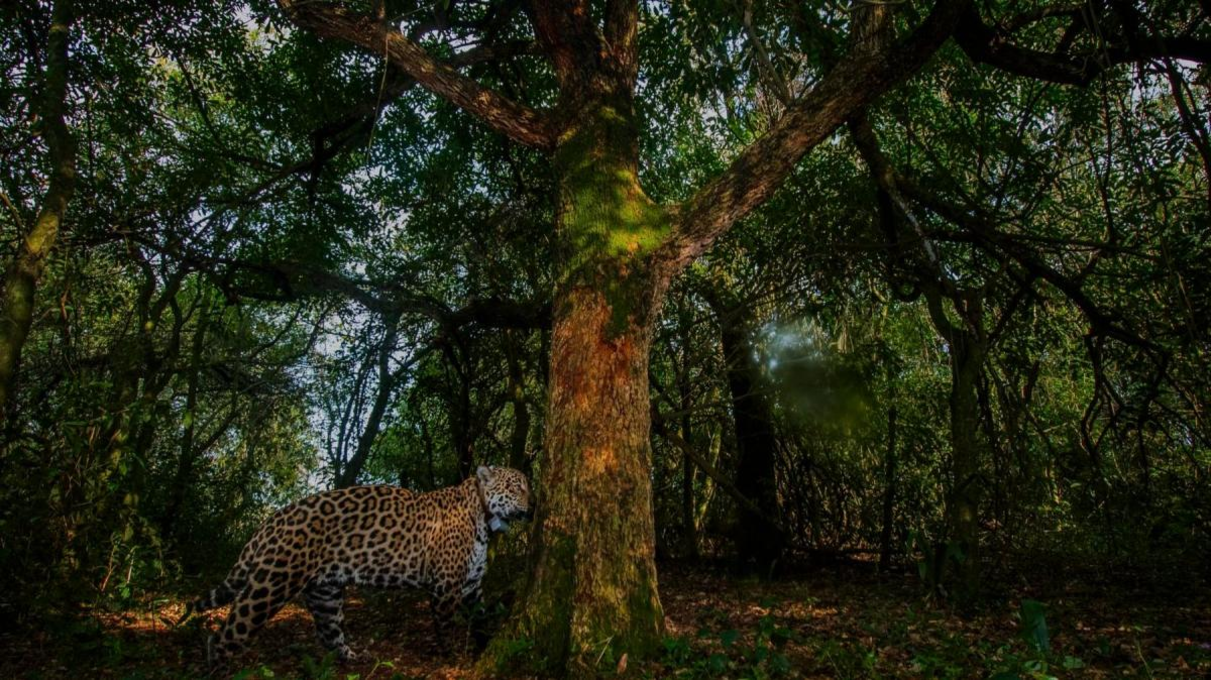Scientists from the Institute of Subtropical Biology and the Yaguareté Project (CeIBA-CONICET) captured two jaguars in northern Misiones.
They did it with the support of technicians from IMiBio, from the Ministries of Ecology and Agriculture of the province, and veterinarians from the animal shelter Güira Oga.
It was done simultaneously with the aim of evaluating their health and advancing monitoring and research tasks.
Two Jaguars Captured in Misiones for Monitoring
They proceeded with the capture of the two wild specimens in a private reserve in the Iguazú department.
 Why they monitor jaguars.
Why they monitor jaguars.
The goal was to evaluate the animals’ health and fit one of the individuals with a satellite collar to study their movements and improve coexistence with the species.
These types of captures for scientific purposes are approved by Resolution N° 36 2024 of IMiBio.
The site contains patches of forest plantations and pastures for livestock within a matrix of native forest. It also has areas of strict reserve and sustainable use.
What Happened in the Reserve with the Jaguars
During the past months, there were several cases of predation on domestic livestock by large felines on the property.
Monitoring and capture were made possible thanks to the commitment of the owners and their staff to the care of these specimens. Initially, this allowed for permanent camera trap monitoring implemented by the establishment’s workers along with the scientists.
They had the support of the Wildlife Conservation Foundation of Argentina. This monitoring allowed identifying the jaguars for subsequent captures.
They are two females, mother and daughter, who have been using this property for at least a year. The mother is named Elecha and has been known to scientists monitoring through camera traps since 2014.
It is estimated that she is at least 15 years old, during which she has had at least three litters of cubs. The daughter, named Ararokái (Rainbow in Guarani language), is close to a year old, weighs 47 kilos, and is already similar in size to her mother.
Satellite Collar
 The jaguar is endangered.
The jaguar is endangered.
Elecha was fitted with a satellite collar donated by the Iguazú Agroecological Foundation that will allow studying her movements in a fragmented native forest environment. There are various land uses there.
It will also help evaluate and improve management strategies to prevent possible predations on domestic livestock, for a better coexistence of this species with livestock activities.

